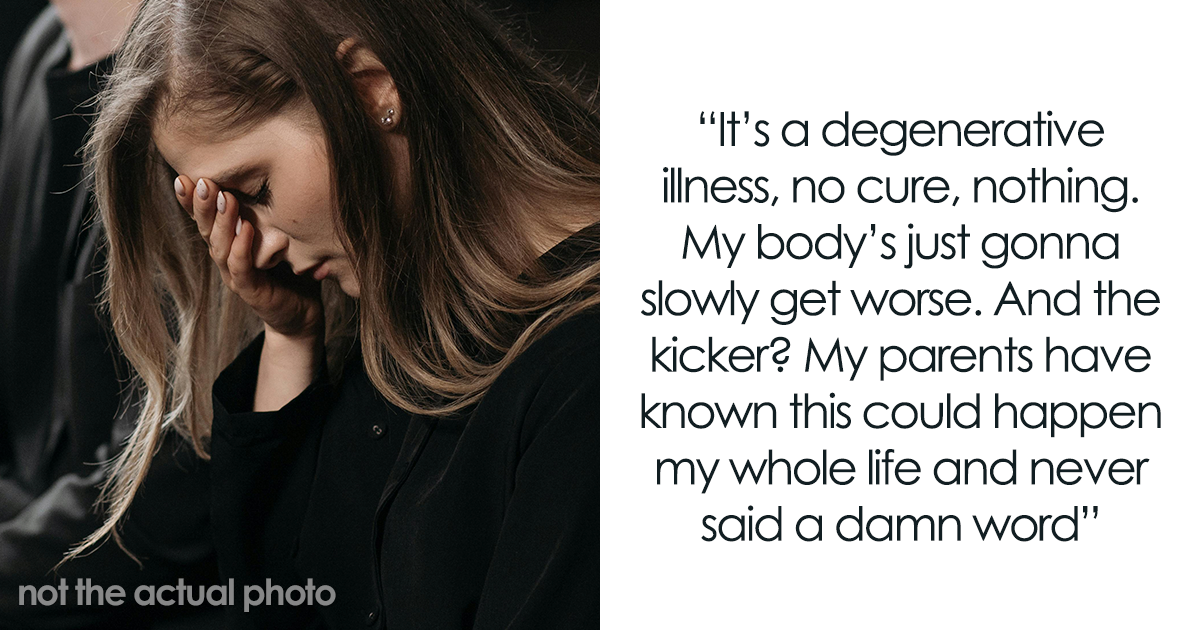[ad_1]
We all are, unfortunately or sometimes fortunately, subjected to suffering the consequences of our parent’s choices. Where you live, what you eat and what you look like is generally decided by the life your parents put together. But for some, this genetic legacy goes beyond eye color and facial features.
A woman wondered if she was wrong to call her parents selfish for having her when they knew there was a high chance she would inherit an incurable disease. We reached out to the woman in the story via private message and will update the article when she gets back to us.
Hereditary diseases are generally pretty predictable

Image credits: Pavel Danilyuk / pexels (not the actual photo)
But one woman learned her parents had been hiding a serious condition from her for years
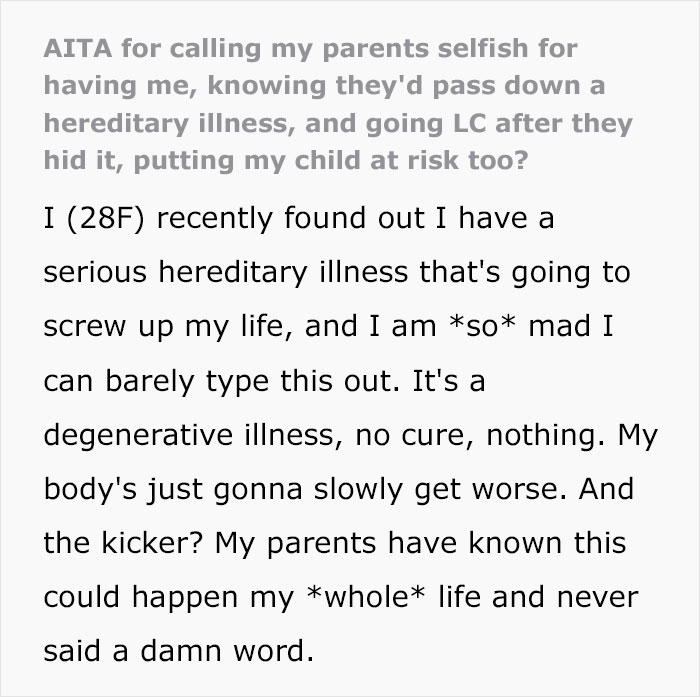
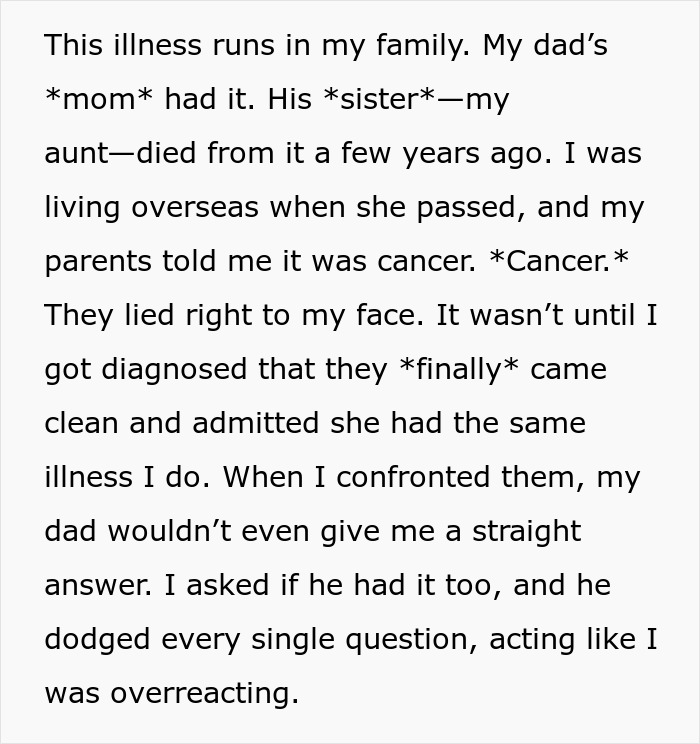
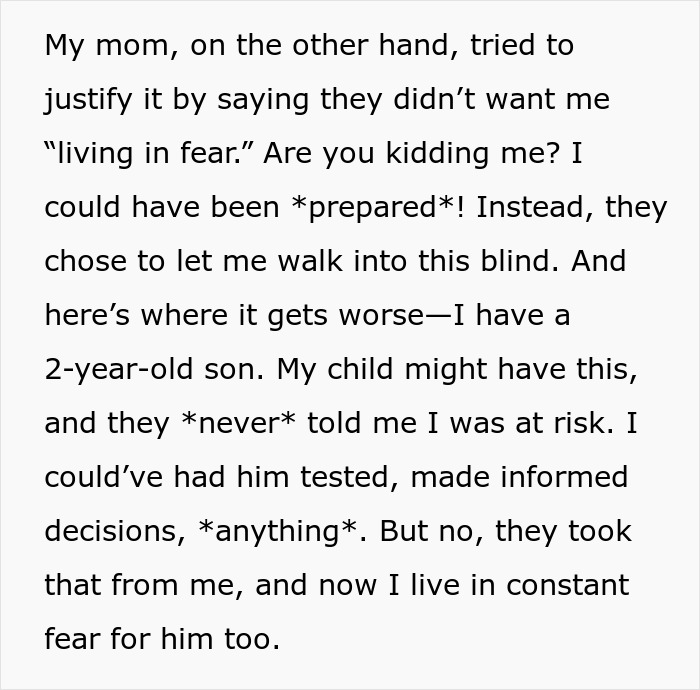

Image credits: Sarah Chai / pexels (not the actual photo)
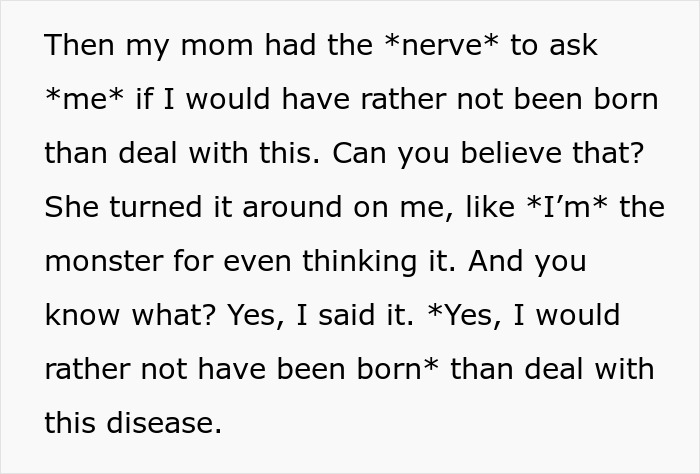
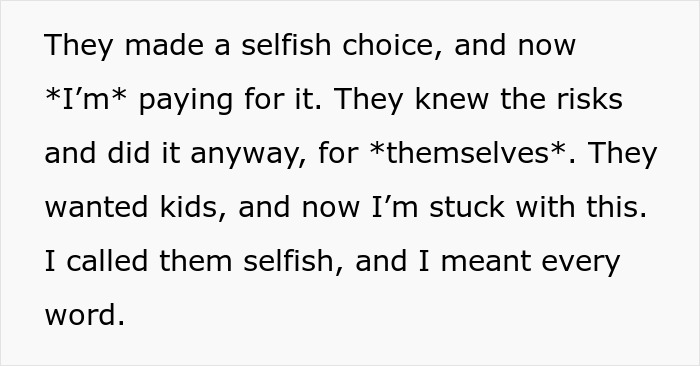
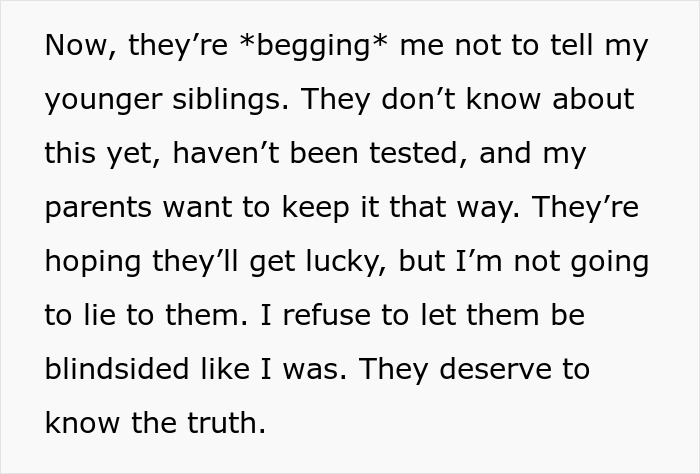
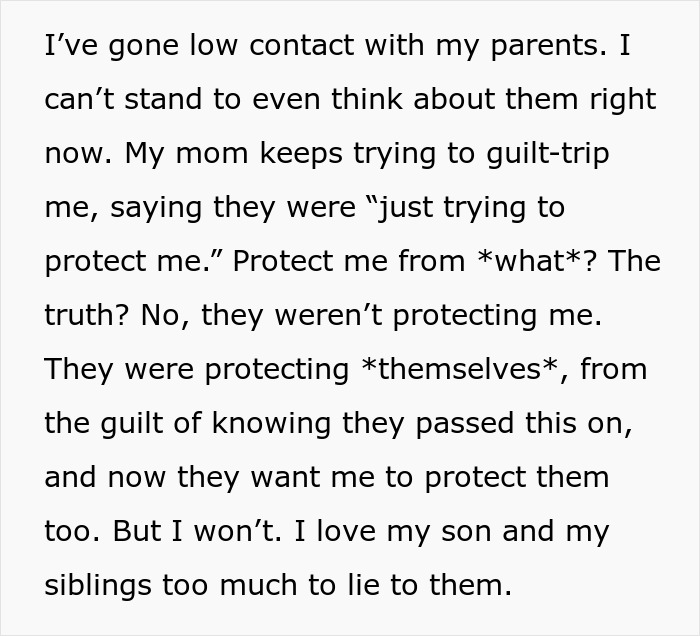
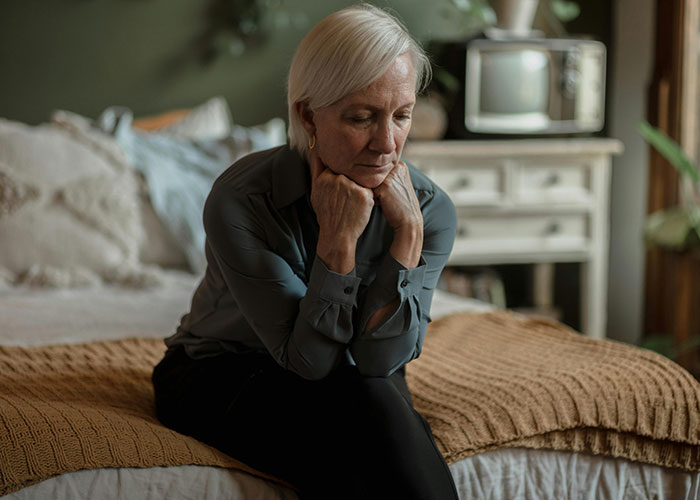
Image credits: RDNE Stock project / pexels (not the actual photo)

Later she clarified some things in an update

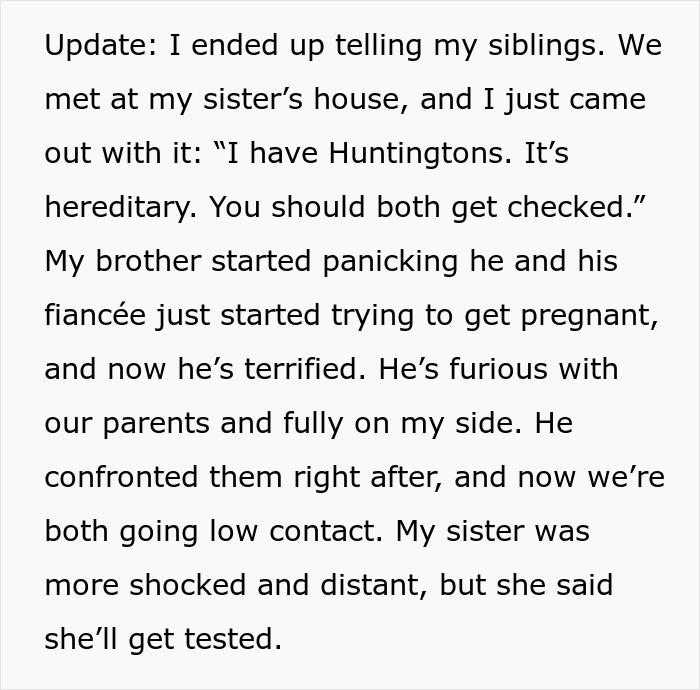
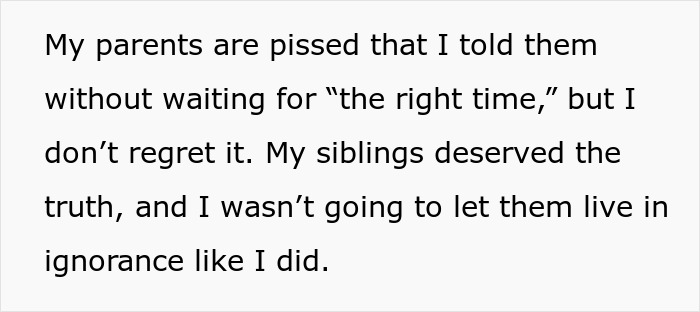
Image credits: Quirky_Background838
Huntingtons is a true nightmare disease
For those who are not familiar with Huntington’s, consider yourself blessed. It’s a neurodegenerative disease that is incurable and is in almost all cases inherited. It can be hard to detect if one’s family hasn’t been diagnosed with it, as symptoms start to manifest after the age of thirty, although they can show up as late as fifty.
Generally, Huntington’s manifests as a gradually worsening ability to control one’s movements. Over time, the person ends up having difficulty swallowing and speaking, while, simultaneously, cognitive abilities also decline, often going as far as the person having dementia. It’s a horrible disease, made worse by the fact that there is no cure, just the assurance that it will get worse.
If your family is predisposed towards Huntington’s and you don’t have it, it means you won a literal coin toss, as the risk is almost perfectly 50%. These are pretty terrible odds, particularly if you are dooming a child to go through life without knowing if the condition is going to strike in their thirties or forties.

Image credits: Pavel Danilyuk / pexels (not the actual photo)
Living with the knowledge of a terminal illness is very hard
This is perhaps why the woman’s parents didn’t want to tell her, as Huntington’s can be very hard to diagnose until the symptoms start. In other words, you can go through almost three decades worrying about something without knowing. There is some argument for not telling someone, but, as this story demonstrates, a painful truth is probably better than living a lie. It can be very hard to talk about, but the consequences of avoiding this conversation are even worse.
After all, the woman in the story herself admits that she would not have a kid if she knew. As difficult as it seems, it’s generally for the best if people can make arrangements for their life early, not have this devastating news sprung on them. The other issue is the fact that the parents decided to have kids at all. Unfortunately, we won’t be able to hear their reasoning, but there are really not a lot of “good” reasons to have multiple kids when you risk perpetuating something like Huntington’s.

Image credits: cottonbro studio / pexels (not the actual photo)
Calling one’s parents selfish is a controversial action
While in some cases, it’s possible that people were not aware, as Huntington’s does share symptoms with other, highly debilitating neurodegenerative diseases, but in this story, it would appear that the woman’s parents knew what was happening. Even then, taking responsibility is a normal part of being a mature adult. They understood the risks and decided to have kids anyway. Not adopt, not give up their dreams of having children, they just went on with their lives.
Even worse, they didn’t have a plan to explain the risks. They just hoped for the best and were caught off guard after one of their children did a little bit of digging. This is perhaps very human, as most of us struggle to face hard truths, but it’s also ultimately selfish. The question of “is a parent to blame for the existential suffering of a child?” is one that humanity hasn’t really answered, but that isn’t to say that this woman can’t call her own parents selfish.

Image credits: Pavel Danilyuk / pexels (not the actual photo)
Most thought she was absolutely in the right
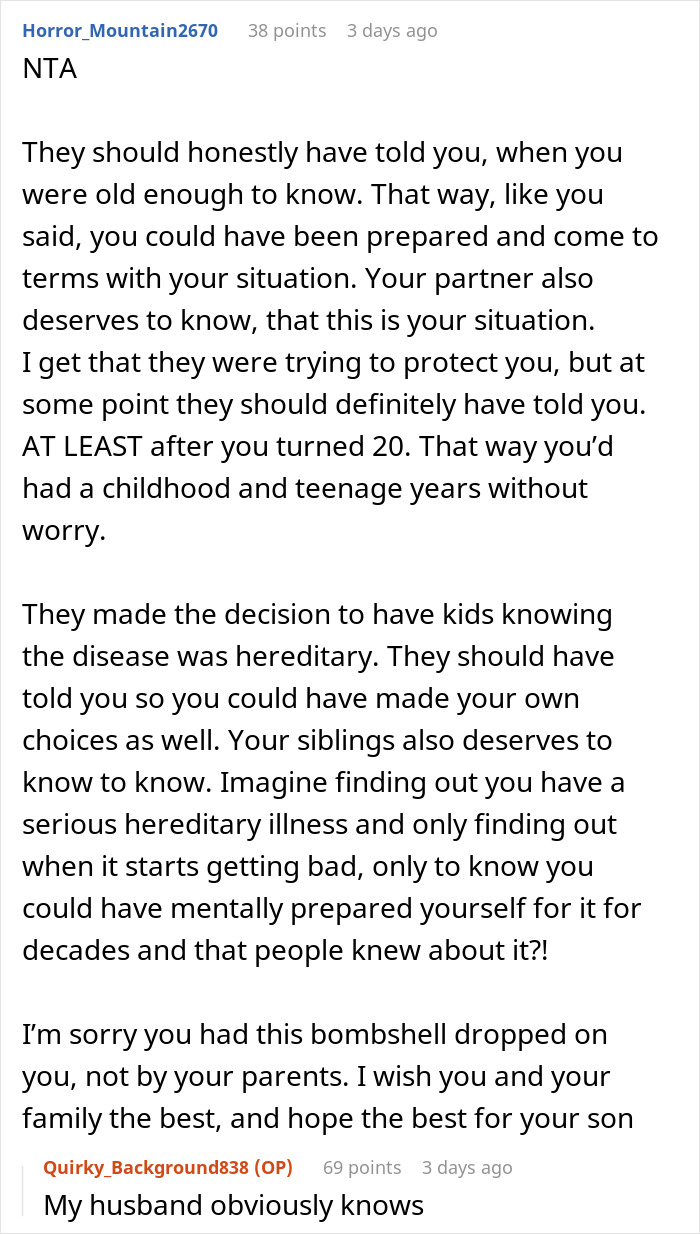
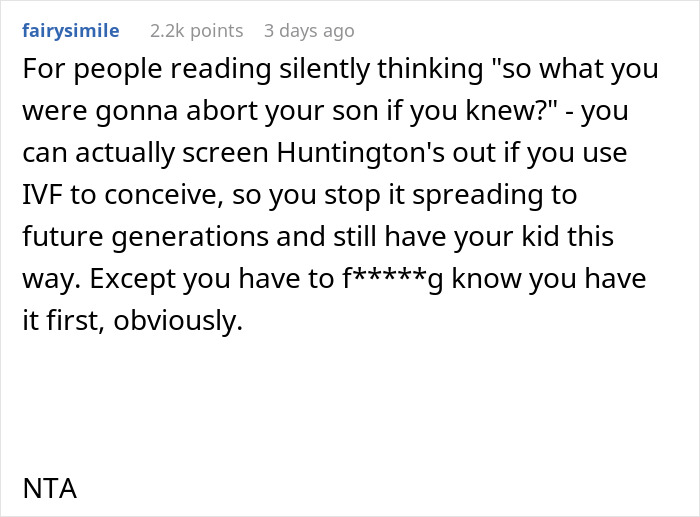
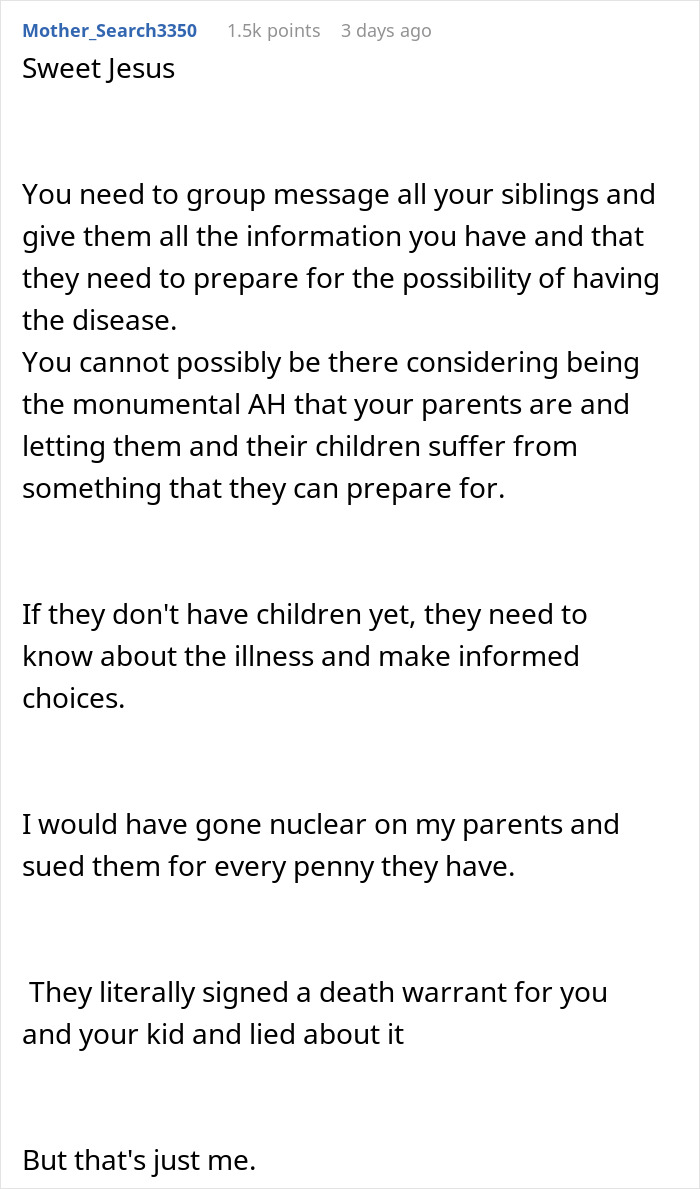
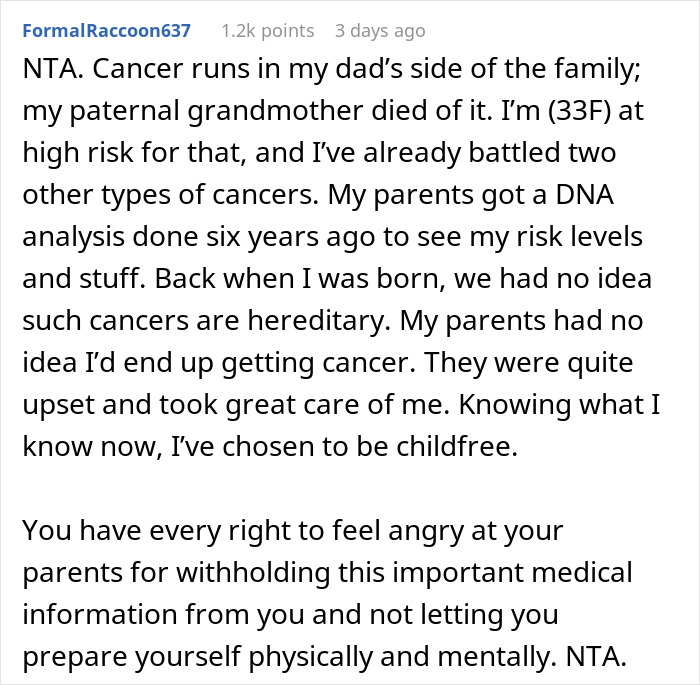
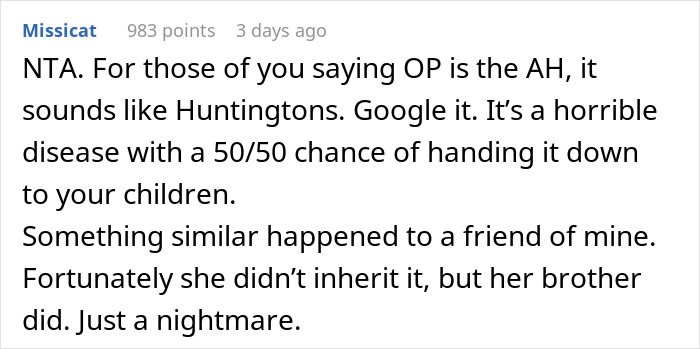
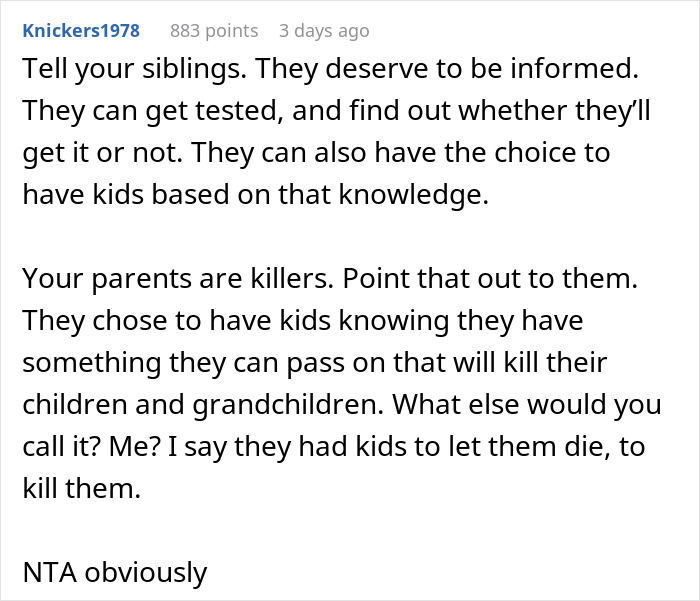
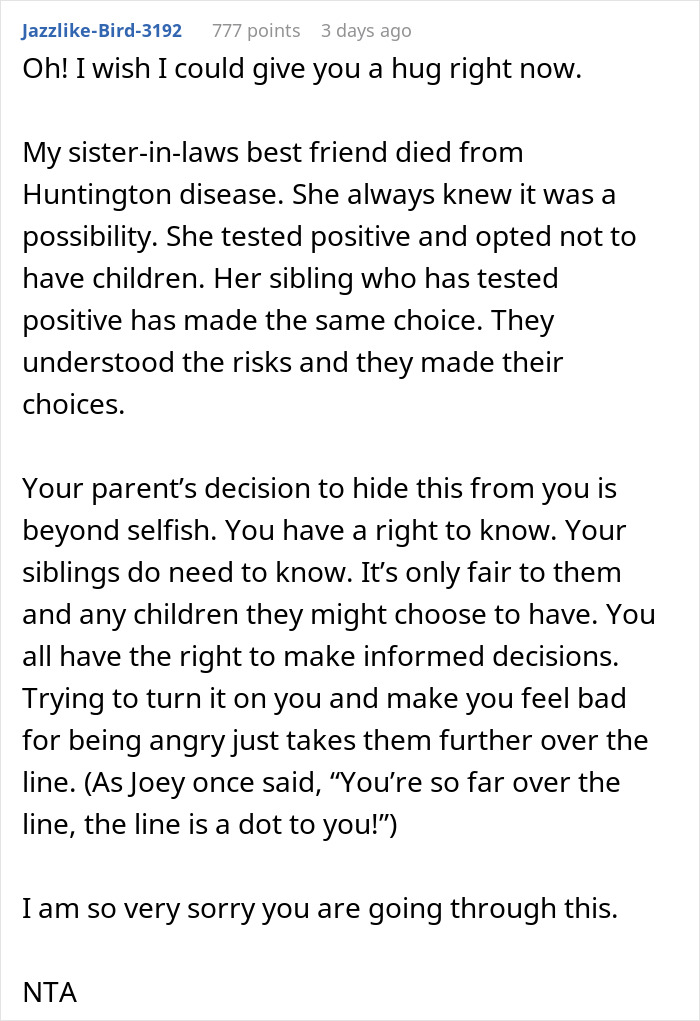

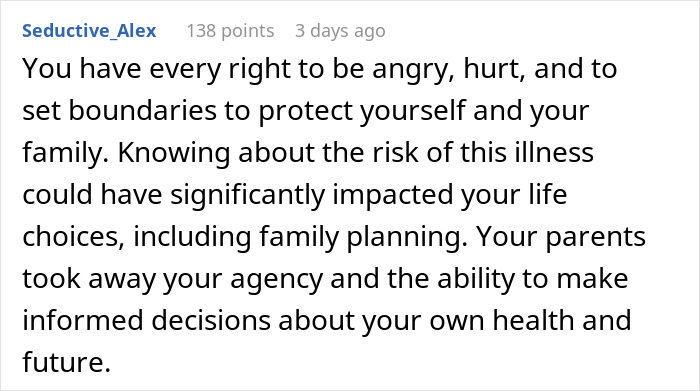
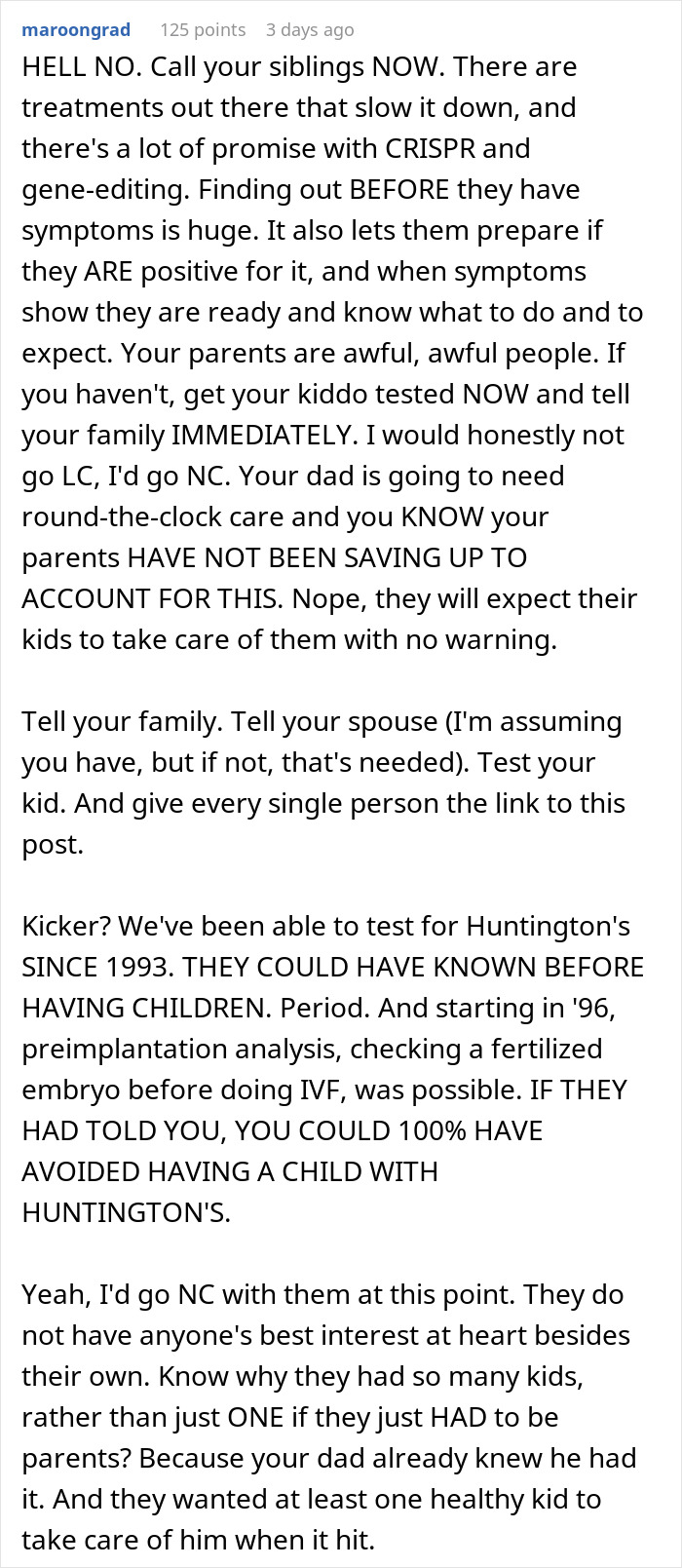
But a few sided with the parents
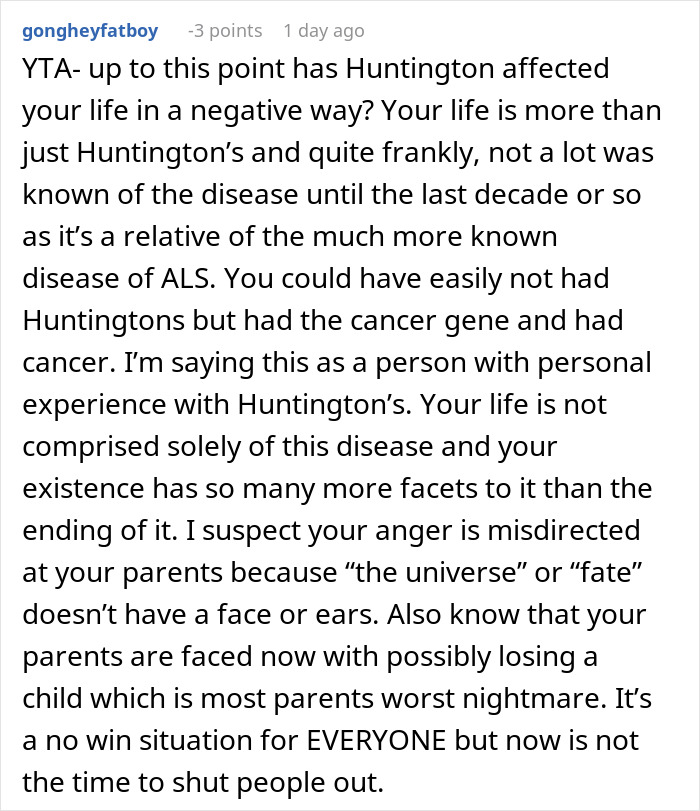
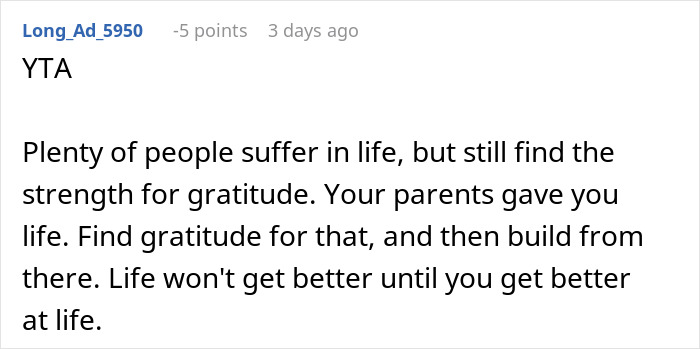
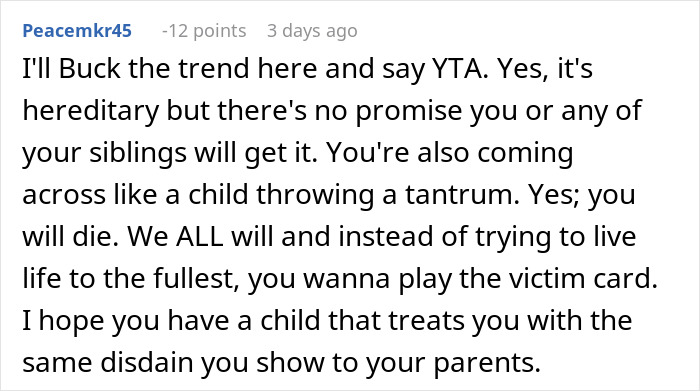
Others shared similar stories
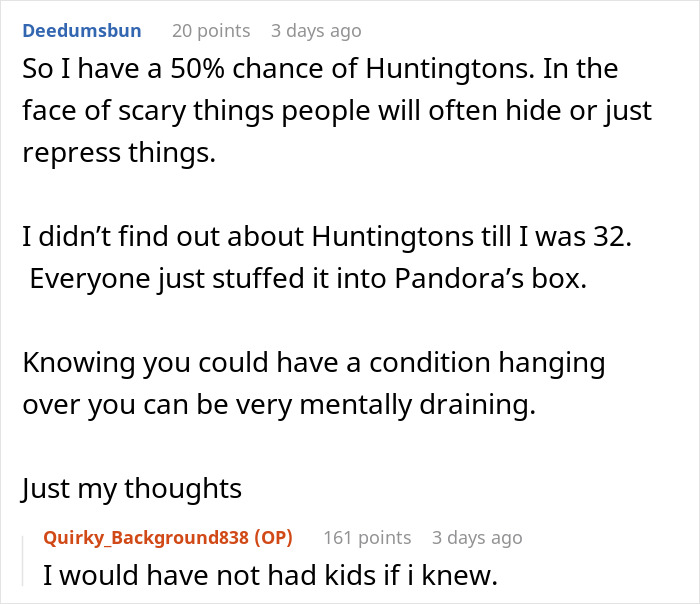
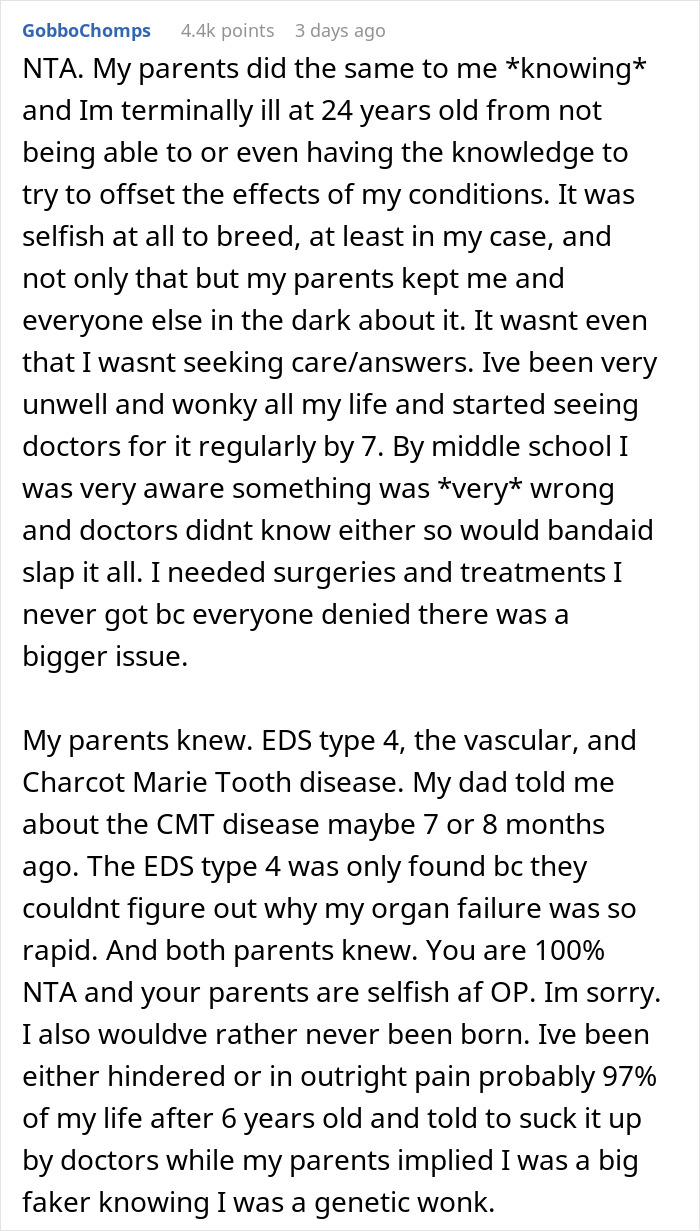
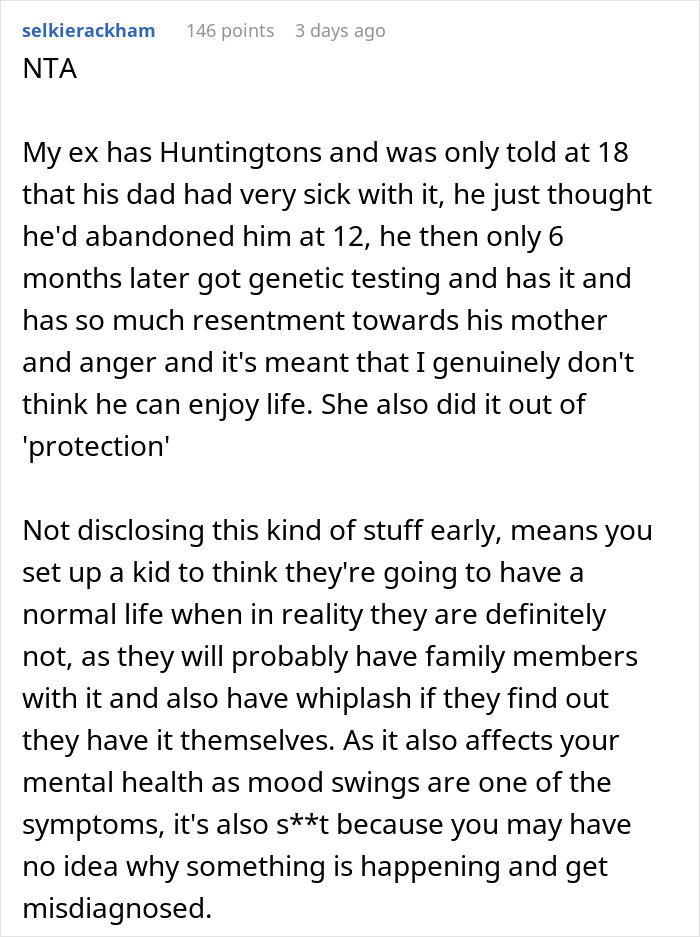
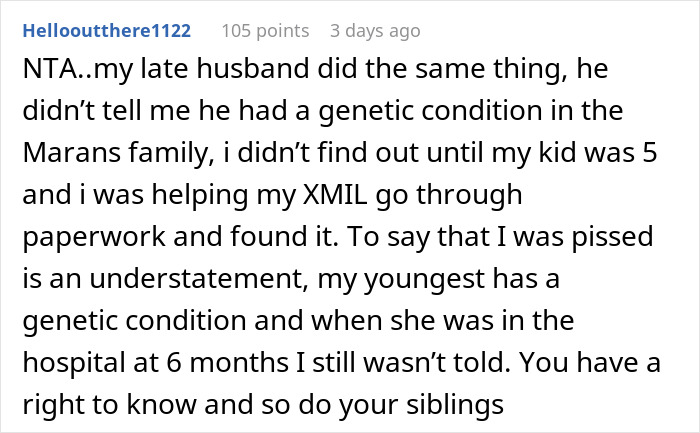
The post “AITA For Calling My Parents Selfish For Having Me, Knowing They’d Pass Down Hereditary Illness?” first appeared on Bored Panda.
[ad_2]
Source link
